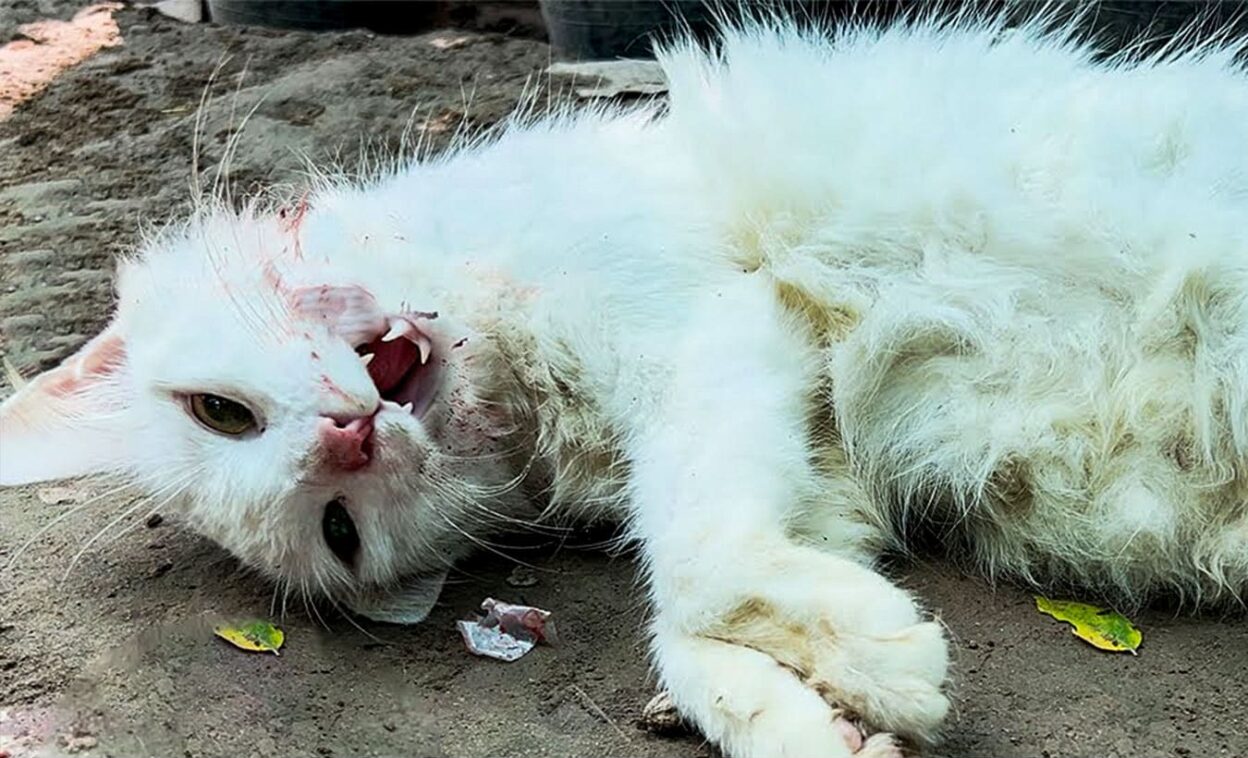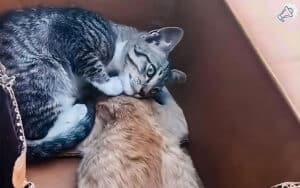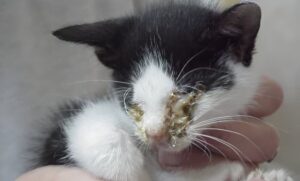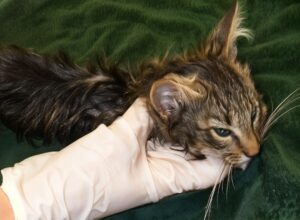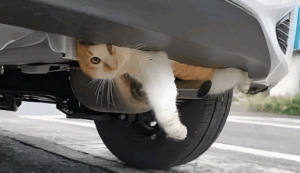Imagine your furry friend, curious as ever, nibbling on something dangerous. What would you do?
This heart-wrenching tale follows a cat’s desperate struggle after consuming poison. It’s a cautionary reminder for every cat lover to act fast when your cat ate poison. Here’s how one compassionate man saved a cat, what signs of poisoning to look for, and how you can protect your feline companion.
A Cat’s Harrowing Encounter with Poison
Cats are curious creatures, often exploring the world through their noses and mouths. Unfortunately, this behavior can lead them into danger. In this story where a cat ate poison, it unknowingly consumed poison. Within hours, the effects began to show—lethargy, vomiting, and unsteady movements.

Luckily, a passerby spotted the cat struggling. Realizing the urgency, he sprang into action. This gripping rescue illustrates the importance of recognizing poisoning symptoms in cats and acting fast to save their lives.
How One Man Saved a Cat Who Ate Poison
In this story, the kind passerby carefully wrapped the cat in a blanket to keep it warm. He called the nearest vet, explained the situation, and rushed the cat to the clinic.
The vet administered activated charcoal to absorb the toxin and provided IV fluids for dehydration. After hours of care, the cat survived. Without quick thinking and proper vet care, the outcome could have been tragic.
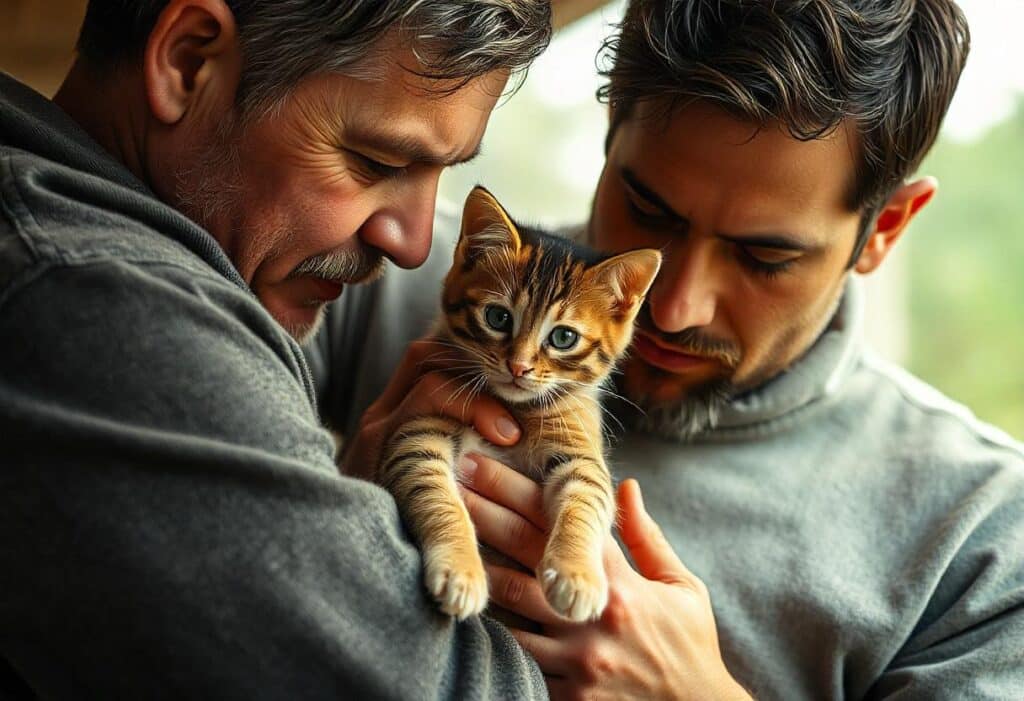
Symptoms When a Cat Eats Poison
Understanding the signs of poisoning can make all the difference:
Common Symptoms to Watch For
- Excessive drooling or vomiting
- Lethargy or weakness
- Seizures or muscle tremors
- Difficulty breathing
- Unsteady movements or collapse
If you notice these signs, don’t wait. Immediate action is critical.
Emergency Treatment for Poisoned Cats
If your cat ate poison, follow these steps to give them the best chance at survival:
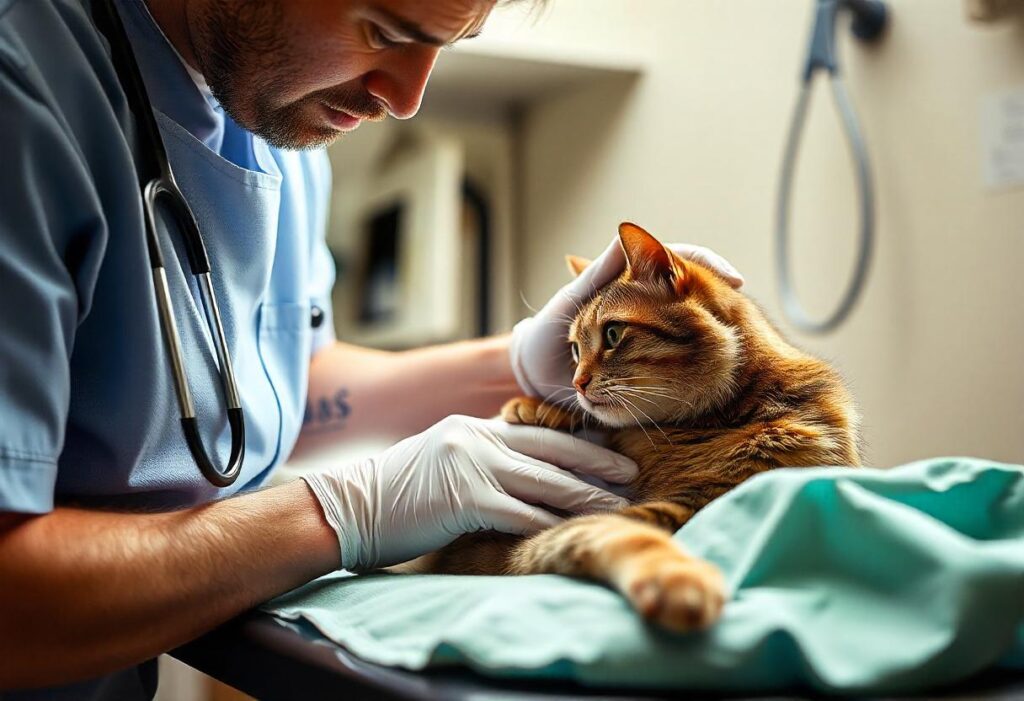
1. Stay Calm and Assess the Situation
Identify what your cat may have ingested. Toxic foods for cats like chocolate, lilies, or antifreeze can quickly cause harm.
2. Contact Your Veterinarian Immediately
Call your vet or an emergency animal clinic. Describe the symptoms and what poison you suspect.
3. Avoid DIY Remedies Without Vet Guidance
Inducing vomiting or giving remedies like milk without proper advice can worsen the situation. Always consult a vet first.
4. Transport Your Cat Safely to a Vet
Time is of the essence. Transport your cat in a secure carrier and bring a sample of the suspected poison if possible.
Toxic Foods and Substances to Keep Away from Cats
Prevention is always better than cure. Protect your cat by keeping these toxic substances out of reach:
- Foods: Chocolate, onions, garlic, and grapes
- Plants: Lilies, tulips, and azaleas
- Household Items: Antifreeze, rodent poisons, and cleaning products
Even a small amount of these can harm your cat.

Cat Poisoning Prevention Tips
- Store chemicals and medications in cat-proof cabinets.
- Avoid feeding table scraps without checking for toxicity.
- Use pet-safe plants and flowers in your home.
- Educate family members about common toxins.
- Supervise outdoor exploration to prevent accidental poisoning.
By taking these precautions, you can create a safer environment for your feline friend.
What to Do If Your Cat Eats Poison and How to Act Quickly to Save Them
Every cat lover must be prepared for emergencies. Always have your vet’s contact information handy. Acting quickly can mean the difference between life and death for your cat.
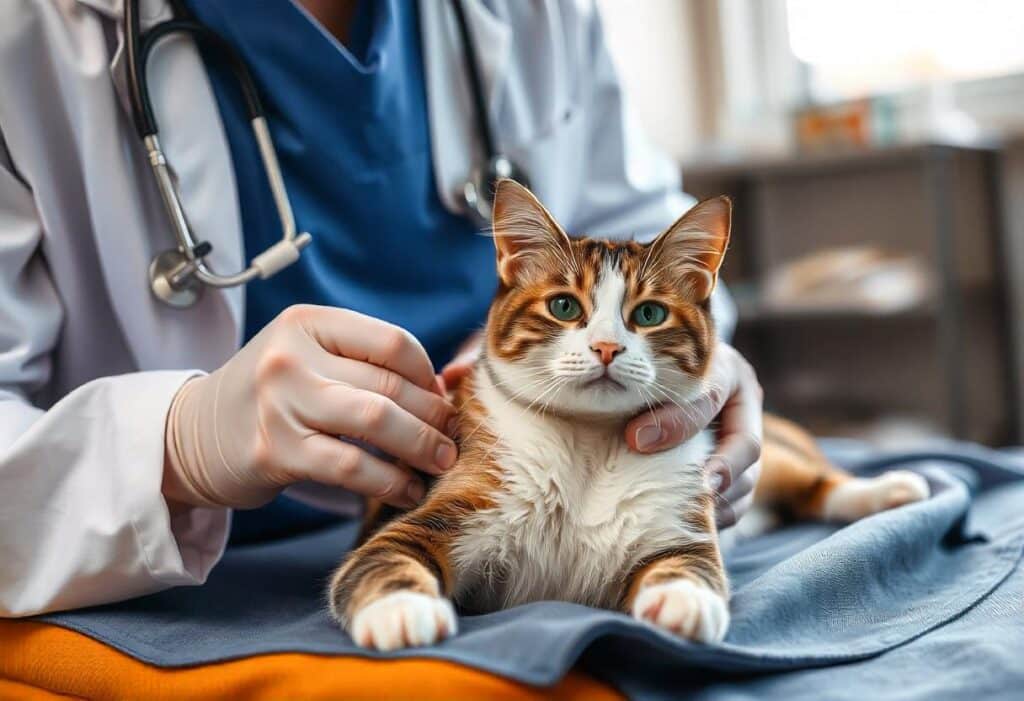
A Lesson in Compassion and Responsibility
This story reminds us how small acts of kindness can make a big difference. If you see a stray cat in distress, take action. Your intervention could save a life.
Do you have a similar experience or tips for keeping cats safe? Share your thoughts in the comments below!


